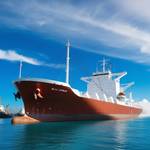Pipelines
Modern pipelines are installed with and other control devices (pumps and valves) to efficiently move liquids, gases, slurries (solid particulates in liquid suspension) and even solids. Pipelines usually consist of welded sections of metal pipe, but other materials in common use include plastics, concrete, and clay.
Sections can be as small as five cm (two inches) in diameter, and as wide as 9 meters (30 feet ). Pipelines are an excellent way to transport liquids and gasses because they cause less harm to the environment, are not as susceptible to theft, and are more cost-efficient, convenient, and consistent than rail or truck.
Pneumatic tubes using compressed air have even been utilized to transport solids, although they are more difficult and expensive to send through pipelines than are liquid and gas. Nonetheless, pipelines have successfully carried coal, grains, stones and gravel, cement and concrete, solid wastes and sewage, wood pulp, industrial parts, and other items.




















